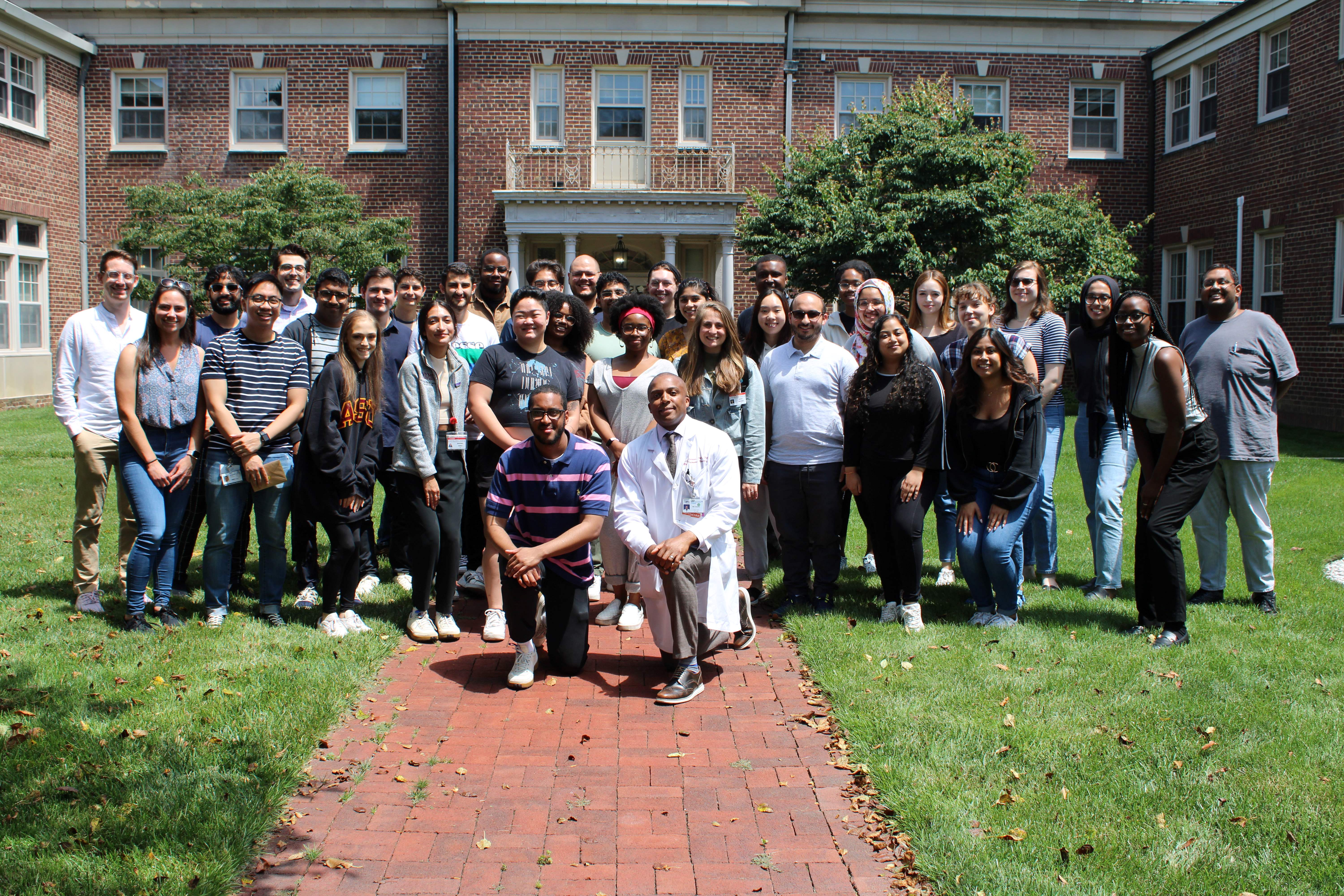
Funding Awarded to Bolster Medical School Success for Historically Disadvantaged Students
The Grant from the Association of Medical Schools of New York Will Allow for the Expansion of Programs that Support Students Facing Academic Barriers

The Office of Diversity and Inclusion (ODI) has been awarded a nearly $100,000 Diversity in Medicine grant from the Association of Medical Schools of New York (AMSNY) to support a series of programs that the ODI developed to enhance medical school recruitment and retention of historically disadvantaged students. In the award letter, AMSNY noted that ODI’s program proposal “demonstrated an impressive commitment to supporting students who have overcome adversity by creating innovative opportunities for them to pursue careers in medicine and science.”
This award pairs alongside AMSNY-NYMC’s longstanding pipeline program that currently provides direct linkage to the School of Medicine (SOM) from NYMC’s Graduate School of Biomedical Sciences (GSBMS) and has had immense success, boasting more than 80 percent matriculation into the SOM and 100 percent of the students who matriculate graduate and match into residency programs. Students who leave NYMC enter competitive residency programs across various sites, including Mount Sinai, Yale University, Rutgers, Montefiore, and Westchester Medical Center, and participate in a wide range of specialties such as pediatrics, internal medicine, obstetrics and gynecology, urology, family medicine, and neurology.
“Supporting the expansion of these programs is something that Dr, Mill Etienne, [M.D.’02, M.P.H., vice chancellor for diversity and inclusion and associate dean for SOM student affairs] and I are deeply passionate about,” says Victor Garcia, Ph.D. ’15, director of the AMSNY-NYMC linkage program and assistant professor of pharmacology. “This new AMSNY grant will allow us to provide even more comprehensive support to students who have faced immense adversity, ensuring that they have the tools and mentorship needed to thrive in their medical education and beyond.”
The grant will allow ODI to expand and enhance existing programs aimed at supporting students facing academic barriers. These programs include the Pre-Matriculation Program, which offers new students an opportunity to strengthen their academic, professional, and social skills through sessions on test-taking, mental health and wellness, career advising resources, and more; the Near-Peer Study Coaching Program, which helps students to focus on study skills, time management, and other non-content-related academic challenges; and the Resilience, Intervention, Student Experience (RISE) program, which aims to dispel the stigma surrounding exam failure and academic challenges in medical school.
“Academic failure in medical school is a complex and multifaceted issue. When a student struggles in medical school, we work with the student to get to the root of the problem and identify what contributes to their lack of success so we can offer an appropriate intervention,” says Dr. Etienne. “Early intervention is critical to supporting learners’ success.”
“Studies have shown that peer tutoring programs offer learning opportunities not otherwise available within medical school curricula, help shift the competitive culture in medical school, and report significant learning outcomes for students at high risk of failure,” says John Blicharz, Ph.D., director of the Office of Academic Excellence. The ODI will work with the Office of Academic Excellence to execute the grant.
The grant will also provide for a more robust implementation of a comprehensive pipeline program for pre-medicine students to enhance their exposure to the medical field during the gap year between undergraduate studies and medical school. Additionally, it will support students with United States Medical Licensing Exam (USMLE) accommodation applications and the associated full neuropsychological evaluations. “Educational, health, and financial systemic inequities should not preclude students from obtaining the accommodations they require to fully demonstrate their educational potential,” says Dr. Etienne.

